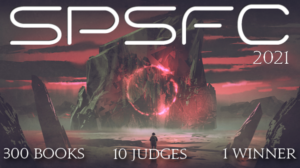
We’ve hit the fourth of five batches in the first phase of the first round of the Self-Published Science Fiction Competition. With one update to go, this brings Team Tar Vol On to 18 eliminations and six quarterfinalists. Check back early next week for batch five. But in the interim, check out our fourth set of cuts and quarterfinalists.
Bloodlines
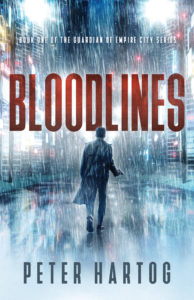
Author: Peter Hartog.
Premise: A former star detective with a checkered past is enlisted to join a special crimes unit in a blended sci-fi/fantasy mystery.
Status: QUARTERFINALIST.
Consensus: In what was a batch four trend of sci-fi law enforcement, we have a grizzled-but-troubled detective trying to solve unusual crimes. It’s not an unusual premise, but one of our judges particularly enjoys noir stylings, and others were intrigued by the combination of sci-fi and fantasy in the worldbuilding. Combine that with a fast-paced, easy-to-read prose style and we had enough to deliver our sixth quarterfinalist.
The Diamond Device
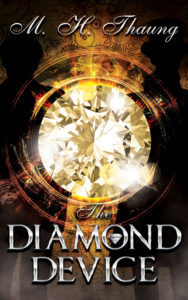
Author: M.H. Thaung.
Premise: In a steampunk setting, a disabled laborer struggling to make ends meet crosses paths with a high society thief who convinces him that working together may help not just themselves, but their entire nation.
Status: CUT.
Consensus: The Diamond Device is a slow build, with only the barest outline of plot revealed in the first 15-20%. Our judges had no complaints with the quality of the storytelling, but neither did we find it difficult to put down. Ultimately, the cut here was a matter of taste. If any of our readers were enamored with steampunk, it very likely would’ve been enough to flip the results. But a solid-but-unexceptional start in a subgenre that didn’t catch our eye? Not enough for a quarterfinals position.
Impact
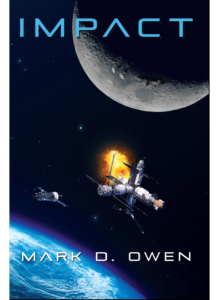
Author: Mark D. Owen.
Premise: An explosion at the International Space Station generates a debris field that leaves an international Moon base stranded. With their nations squabbling on earth, scientists must work together to survive on the Moon—and hope that one inventor back on Earth can devise a means of rescue.
Status: CUT.
Consensus: Impact pushes the right buttons in the setup, with an immediate crisis supplying the hook and a “disparate group must find a way to work together and solve problems” plot that really appealed to a few of our judges. But we got the impression of being told what we needed to know, rather than being dropped into the story to see it for ourselves, and it made the narrative feel less natural, ultimately leading to a decision to cut.
The Judas Cypher
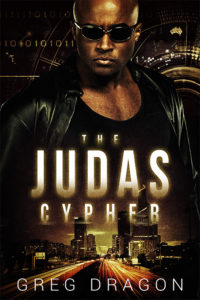
Author: Greg Dragon.
Premise: In a world in which natural-born humanity and synthetic persons maintain an uneasy peace—one marked with distrust and discrimination—a series of murders may bring that conflict to the fore, and it seems only one detective genuinely cares for the fates of both.
Status: CUT.
Consensus: Another book that may well have gone further with a different group of judges, The Judas Cypher is not afraid of big themes, drawing very intentional parallels between the plight of the synthetic persons and the ancestors of our Black detective lead. The writing is solid, but majority of our judges just didn’t mesh with the stream-of-consciousness narrative style, and a couple did find the lead’s history with synthetic prostitutes offputting. That was enough for us to cut, but a reader who enjoys detective stories and stream-of-consciousness narration may find a lot of appeal here.
Pale Boundaries
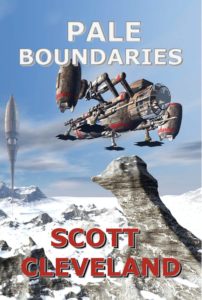
Author: Scott Cleveland.
Premise: Terson Reilly chafes against the social control and distrust of foreigners of his new home planet of Nivia. But when he and his wife attempt to rescue the crew of a crashed spaceship, he threatens secrets deeper than he knows.
Status: CUT.
Consensus: Our judges were intrigued by the alien world, but a pair of major time skips in the first few chapters prevented us from really immersing into a main story. The story before the jumps serves to introduce the character background, but it also delays the start of the central narrative, so that we were still waiting for a hook as we passed the 10% mark. There’s still plenty of time to tell a good story, but we weren’t grabbed early enough to pick it out of a crowded first-round field.
The Star Collector
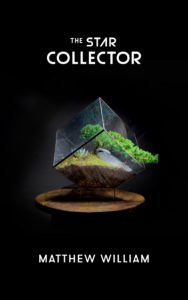
Author: Matthew William.
Premise: A grizzled space-sheriff takes a distress call and stumbles across an artifact of power that puts him in the middle of a struggle greater than he could’ve imagined.
Status: CUT.
Consensus: There are plenty of cliches in the opening portion of The Star Collector, with an experienced-but-prickly sheriff saddled with a fresh-faced, idealist (and in this case, religious and opposed to lethal violence) partner he doesn’t want—right before being thrown into the biggest case of his career. Of course, the tropes exist for a reason, and they can make for a great story if written well. But, while this wasn’t written badly, neither did it capture our judges’ imaginations in the opening stages. One judge was intrigued by how the partner’s religion would affect the story, but it still fell short of our quarterfinal cut line.
